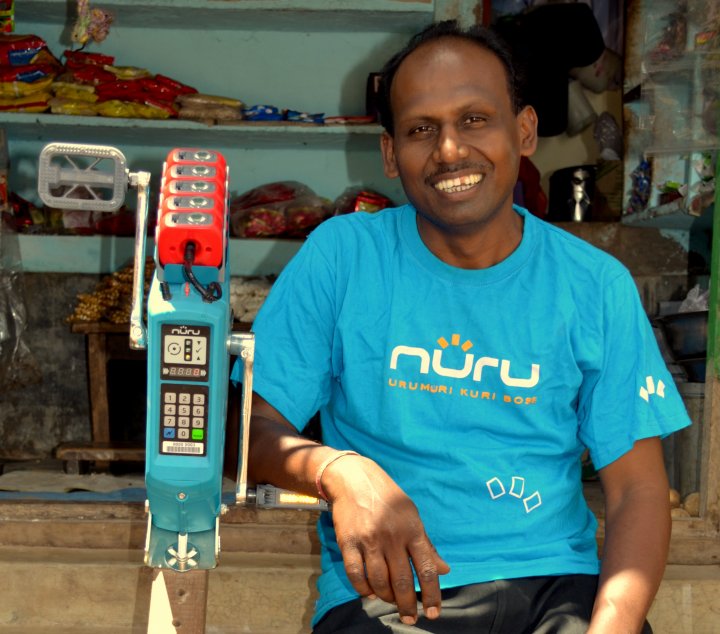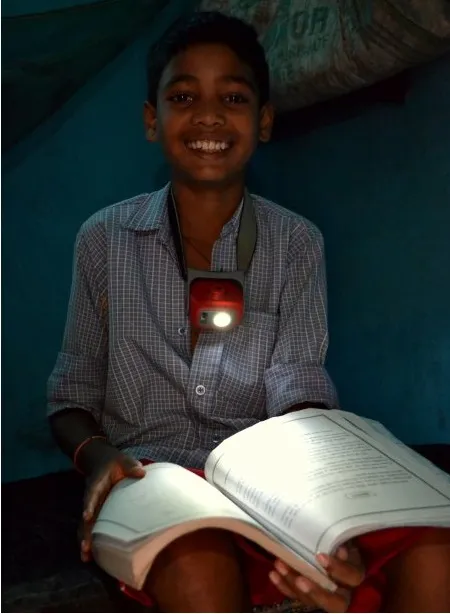Background
Many rural households in India are unconnected to the electricity grid. Currently, over 90% of these households use kerosene for lighting and cooking. Kerosene is both expensive and a serious health hazard. In several Indian states, respiratory diseases from its inhalation account for over 24% of child deaths under the age of five.
With seed-funding from the World Bank, UNEP and UNDP, a company called Nuru Energy has developed individually-recharged, modular LED lights and the world’s first commercially-available pedal generator, the Nuru POWERCycle. Together, these form the most effective and affordable lighting solution currently available to extremely poor rural households at the “base of the pyramid”.
Through a network of village level entrepreneurs (VLEs) trained by Nuru and financed through a national microfinance partner BASIX, a network of microenterprises facilitates the spread of renewable energy services to remote areas.

